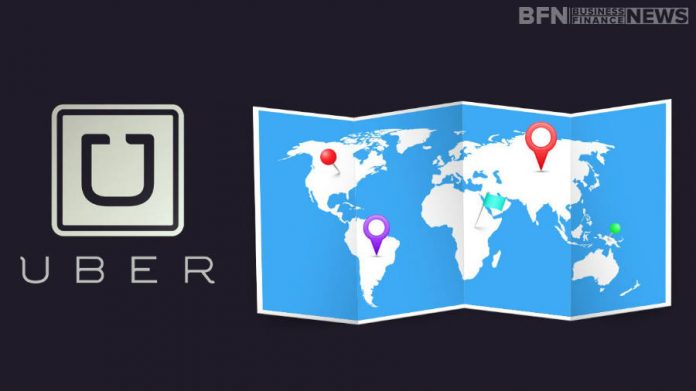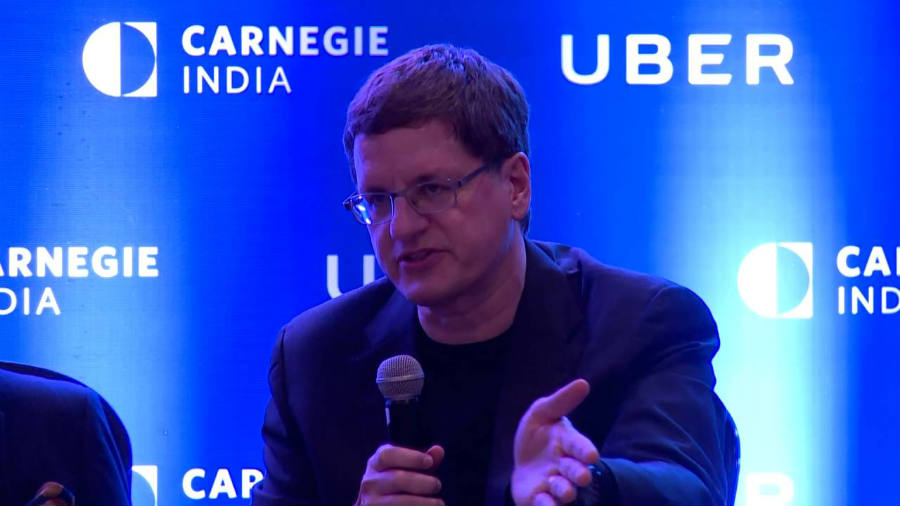
The American ride-hailing service Uber announced last week that the company would be doubling their investments on global mapping technology, a sum that is now reported to be around half a billion dollars.
The announcement follows a quite eventful couple of months for Uber, as the company has been expanding its business around the world. The most recent venture of the organization seems to be focused on its independence from global navigation systems made by third parties, namely Google Maps.
Brian McClendon, a global mapping specialist, hired by Uber back in 2015, posted on the company’s official site a brief statement in which he shed light on their latest efforts to develop their own mapping system.
https://twitter.com/Financeolizer/status/759957688600199170
In the post, McClendon emphasized the importance of maps for services like Uber and how their ongoing mapping project was paramount for a better overall experience. Furthermore, the announcement stated that their fleet of mapping cars traveling the roads of the United States would expand this summer to Mexico.
Uber’s latest move to further position itself as a global transportation powerhouse is the result of recent investments from diverse sources. The project intends the developing of an alternative, independent roadmap system that gathers data and focuses on traffic patterns and hotspots for customers.
Independence from Google Maps and similar services would grant Uber with a wider range to collect accurate data, instead of relying on a system that tracks several irrelevant features for the cab-requesting platform. Furthermore, the $500 million injection seeks to go further and provide detailed mapping of unregistered areas to make their service reach further horizons as well.
Uber has been building an all-star team for its global mapping project
Back in 2015, the company acquired assets from Bing, Microsoft’s own search engine, explicitly dedicated to the gathering of images with the purpose of pumping the gas on their own mapping project. The 100 engineers added to the Uber workforce from Microsoft were part of a merger in which the primary goal was image collection for the development of their own software.
Uber also absorbed the mapping enterprise DeCarta, an initiative responsible for the materialization and improvement of OnStar, the in-vehicle software used by General Motors in its cars.
The latest related announcement before the official post on Uber’s website was the news of its partnership with the satellite imaging company DigitalGlobe last month.
The $500 million investment further confirms Uber’s compromise to create its mapping system, while the company has also engaged in the development of autonomous vehicles and related technology.
In all fronts, there is competition for the California transportation giant, as many of the biggest names in tech and the automotive industry seem to be ahead in the race with similar projects.
Mapping and navigation systems are the primary focus of Uber for now, but even their project leader knows that companies like Apple and TomTom have a long road traveled in the area, as he states in the post.
Brian McClendon, who coincidentally worked alongside John Hanke, Niantic CEO, in the development of Google Earth and Google Maps, knows the competition better than anyone. Both executives worked at Keyhole, Inc. since its inception, and played the roles of VP and CEO respectively even after Google acquired the company in 2004. Coincidentally, both Uber and Niantic were once subsidiaries of Google, but both companies parted ways with the tech giant to pursue their independent ventures.

Now, Uber faces Google, Apple, Tesla and several other automotive developers too in the driverless car market, the future of transportation technologies.
Recent unofficial reports claimed that Apple had turned the engines of their self-driving electric car project back on, with a veteran executive taking the lead of “Project Titan.” Moreover, Google continues the everlasting development of its driver-less vehicle project, with more testing to be done as it “learns” from its surroundings and experience on the road.
Source: TechCrunch










